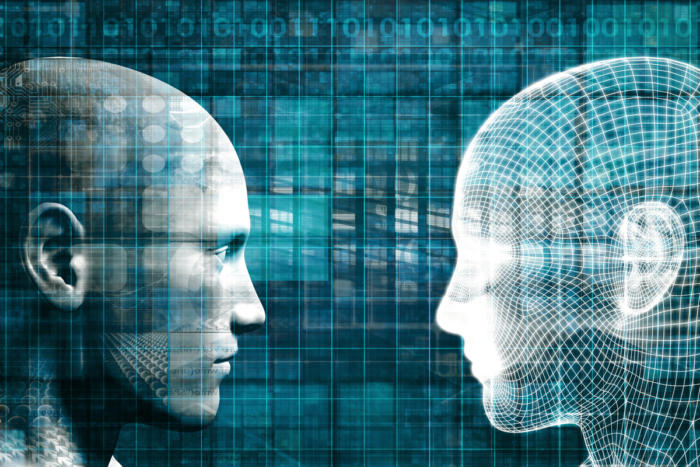Two-thirds of the attendees polled at a recent innovation summit by The Economist agreed on one thing: health care is the sector that will benefit most from artificial intelligence or artificial intelligence (AI) technologies.
copyright by www.cio.com
 In health care, which is in the midst of an industry transformation and a digitalization of key aspects of patient engagement and care management, the role of data, analytics and AI are central to the organizational mission. However, it is easy to get caught up in one aspect or another when extolling (or decrying) the role of AI, while ignoring the near-term potential as well as the limitations of the technology.
In health care, which is in the midst of an industry transformation and a digitalization of key aspects of patient engagement and care management, the role of data, analytics and AI are central to the organizational mission. However, it is easy to get caught up in one aspect or another when extolling (or decrying) the role of AI, while ignoring the near-term potential as well as the limitations of the technology.
How can AI play a role in health care today? In the words of S. Somasegar, a venture capitalist, there are three ways in which AI can impact a business today. Upwards, meaning that AI can take on intelligent capabilities that enable a higher level of interaction with humans; downwards, implying an ability to reduce costs; and outwards, which is to take AI to the edges of our computing infrastructure.
Voice recognition and natural language processing (NLP) technologies help us move up in health care by enabling remote-monitoring and home health care through a “natural” interface with humans. In the health care enterprise, NLP technologies can “read” complex medical literature and provide doctors and clinicians with intelligent choices for diagnosis and treatment options.
With the emergence of cheap computing and storage infrastructure, AI technologies help manage vast arrays of servers and networking equipment, detecting and remediating the most common problems without human intervention. “Purpose-built” hardware with inbuilt AI capabilities are becoming the norm in high-volume and time-sensitive operations that require running machine-learning algorithms on large data sets and doing it at low costs.
The notion of edge computing, a paradigm that takes analytics and AI to the edges of a computing infrastructure, has lately become important in the context of the Internet of Things (IoT) and smart devices. In health care, the proliferation of intelligent devices, in and out of hospital settings, has created many new opportunities. Tom Bianculli, Chief Technology Officer of Zebra Technologies, a firm that provides a mobile devices, scanners and RFID-enabled tags used in hospital environments, talks about “digital diaries” that can log every minute and every second of a device’s operation in the context of patient care. Using a network of tags and near-field communication equipment, Bianculli is now able to track a mobile device in a caregiver’s hands as she makes her way through a hospital floor, recording and analyzing everything from her precise location to her pace of walking to the direction in which she is headed with the device. Extending it to outpatient or even home health care, the deployment of intelligent devices that can analyze data at the “end point” and sending it back to a back-end system can save lives by reducing the time involved in alerting caregivers to medical emergencies. […]
read more – copyright by www.cio.com


Two-thirds of the attendees polled at a recent innovation summit by The Economist agreed on one thing: health care is the sector that will benefit most from artificial intelligence or artificial intelligence (AI) technologies.
copyright by www.cio.com
How can AI play a role in health care today? In the words of S. Somasegar, a venture capitalist, there are three ways in which AI can impact a business today. Upwards, meaning that AI can take on intelligent capabilities that enable a higher level of interaction with humans; downwards, implying an ability to reduce costs; and outwards, which is to take AI to the edges of our computing infrastructure.
Voice recognition and natural language processing (NLP) technologies help us move up in health care by enabling remote-monitoring and home health care through a “natural” interface with humans. In the health care enterprise, NLP technologies can “read” complex medical literature and provide doctors and clinicians with intelligent choices for diagnosis and treatment options.
With the emergence of cheap computing and storage infrastructure, AI technologies help manage vast arrays of servers and networking equipment, detecting and remediating the most common problems without human intervention. “Purpose-built” hardware with inbuilt AI capabilities are becoming the norm in high-volume and time-sensitive operations that require running machine-learning algorithms on large data sets and doing it at low costs.
The notion of edge computing, a paradigm that takes analytics and AI to the edges of a computing infrastructure, has lately become important in the context of the Internet of Things (IoT) and smart devices. In health care, the proliferation of intelligent devices, in and out of hospital settings, has created many new opportunities. Tom Bianculli, Chief Technology Officer of Zebra Technologies, a firm that provides a mobile devices, scanners and RFID-enabled tags used in hospital environments, talks about “digital diaries” that can log every minute and every second of a device’s operation in the context of patient care. Using a network of tags and near-field communication equipment, Bianculli is now able to track a mobile device in a caregiver’s hands as she makes her way through a hospital floor, recording and analyzing everything from her precise location to her pace of walking to the direction in which she is headed with the device. Extending it to outpatient or even home health care, the deployment of intelligent devices that can analyze data at the “end point” and sending it back to a back-end system can save lives by reducing the time involved in alerting caregivers to medical emergencies. […]
read more – copyright by www.cio.com
Share this: